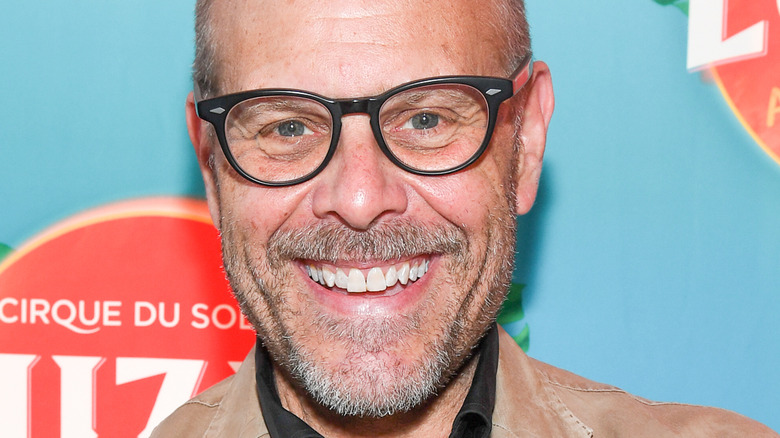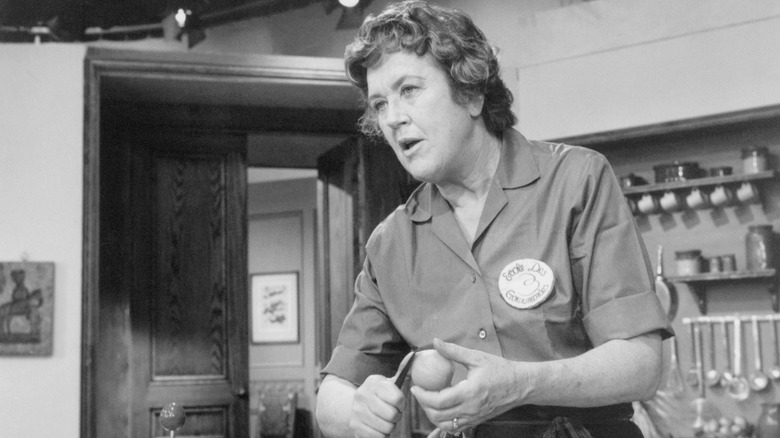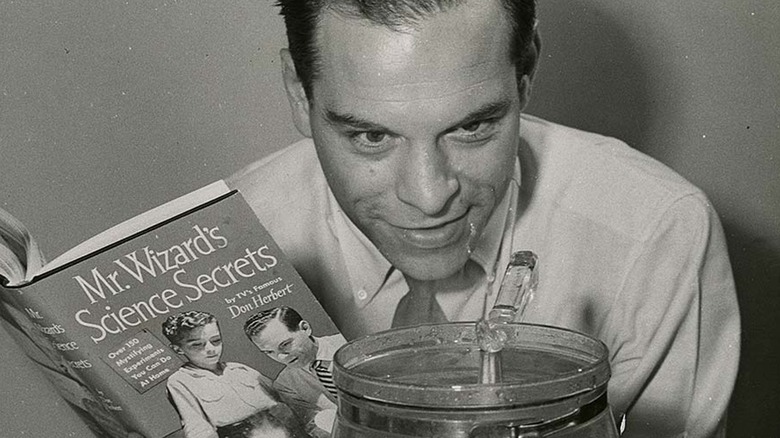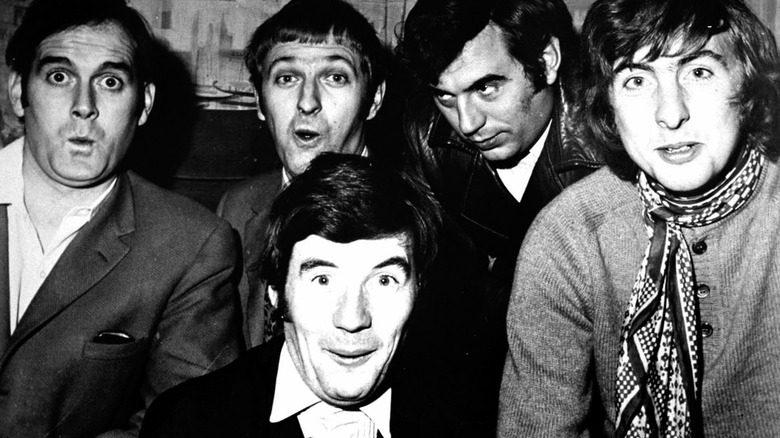Alton Brown Owes His Cooking Show Success To 3 Unusual Influences
Before Alton Brown was hosting "Iron Chef American" and sabotaging contestants on "Cutthroat Kitchen," he was the nerdy host of the food science program "Good Eats." Brown began his climb to food television superstardom with the beloved and revolutionary series that first aired more than two decades ago in 1999. "Good Eats" brought a fun, slightly manic energy to cooking shows, with rapid editing and a fast-paced wit that ran contrary to the simpler, slower "stand and stir" presentations of other food programming. That's because Brown modeled not just Julia Child, but also the science-centered approach of Mr. Wizard and the absurdist humor of Monty Python.
Brown didn't get his start working directly in the culinary world, but rather through directing music videos and commercials. This background in entertainment vitally informed his future career as a television personality and gave him the creative chops to develop an engaging food series. Most importantly, his background in cinematography made him realize a crucially important detail about cooking shows: They were, in fact, quite boring. Combining his television experiences with his actual culinary school degree, Brown set out to create "Good Eats."
The joy of Julia Child
It's difficult to overstate how influential Julia Child was to future cooking shows. "The French Chef," alongside her other programs, is arguably the classic baseline for all other food programming, and her down-to-earth approach to French cuisine changed the way American audiences thought about other types of food. Her unique style, which is now commonplace in the food entertainment world, was direct and amicable, encouraging ordinary folks to start playing with recipes previously deemed much too high-brow for home kitchens.
More than just an expert, Child was what Brown called "an empowerer," someone who could inspire her audiences to practice her teachings on their own as the best types of teachers do (per The Bitter Southerner). That approachability eventually wormed its way into Alton Brown's drafts for "Good Eats," which explained cooking concepts through an easily digestible lens. Despite Child's massive influence, however, it was Don Herbert's "Watch Mr. Wizard" that guided Brown in presenting the show's central concept: science.
The science of cooking a la Mister Wizard
Although modern audiences are probably familiar with Julia Child due to the films, television shows, and documentaries based on her life and career, Mr. Wizard may sound more obscure. That's probably because "Watch Mr. Wizard" dates back more than a decade before the "The French Chef," which first premiered in 1962. But make no mistake: Radio star Don Herbert's move to television pioneered the medium and proved how the boob tube could be used for educational purposes.
Bill Nye of "Bill Nye the Science Guy" fame cites "Mr. Wizard" as one of his main influences, and Brown's approach to the science of food shares more than a little in common with both of these personalities. "Good Eats" is as much of a science program as it is a food show, focusing on the why of recipes besides just the how. Brown also has a knack for delving into the history of particular dishes, giving "Good Eats" a broader appeal over just those looking for a simple idea for a dinner recipe. The final piece of Brown's formula, however, is his signature brand of kooky and sarcastic humor.
Food can be funny
Unlike Julia Child and Don Herbert, the Monty Python troupe were not educators — though no less influential in their own respective field. John Cleese, Terry Gilliam, Eric Idle, Terry Jones, Michael Palin, and Graham Chapman had a profound impact on sketch comedy, showing that their unique brand of surreal, offbeat, and sometimes quite dark comedy could appeal to a larger audience. Instead of playing it safe, the cast of "Monty Python's Flying Circus" stretched jokes to their limit, opening the floodgates for countless other sketch comedians.
Brown stated that it was imperative that he made "Good Eats" funny because there was no point in making an educational TV show if it wasn't entertaining enough for people to tune in to. "Monty Python" provided just enough absurdism to balance out his show's real-world science and cooking advice, creating a program that measured the two sides evenly. Separately, these ingredients may seem disparate but brought together in "Good Eats," they make one tasty and entertaining dish.




